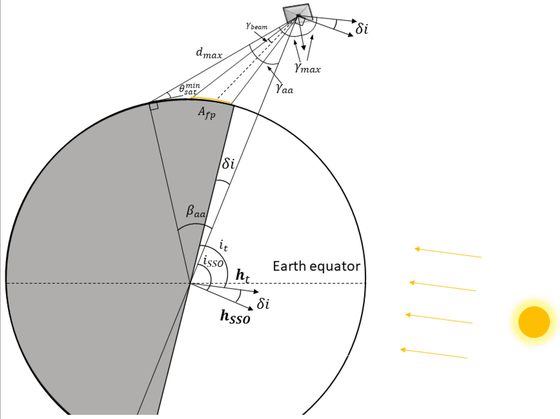A Russian research team announces `` space advertisement '', displaying advertisement from space to the ground with a small artificial satellite

A joint research team by the
Aerospace | Free Full-Text | Satellite Formation Flying for Space Advertising: From Technically Feasible to Economically Viable | HTML
https://www.mdpi.com/2226-4310/9/8/419/htm
Skoltech | Ad-block this: Space advertisers ready to display commercials in the sky
https://www.skoltech.ru/en/2022/10/ad-block-this-space-advertisers-ready-to-display-commercials-in-the-sky/
Who is ready for a fleet of cubesats flying over cities, displaying ads? | Ars Technica
https://arstechnica.com/science/2022/10/russian-space-scientists-have-the-worst-idea-ever-space-based-advertising/
The Skolkovo Institute announced a release on October 5, 2022 entitled 'Try ad blocking this. Space advertisers, ready to display commercials in the sky.' The release is based on a paper published in Aerospace , an open access journal of aeronautics and aeronautics. The paper evaluates the technical feasibility of flying satellites in formation in outer space to reflect sunlight and display commercials over cities, while also evaluating the technical feasibility of satellites flying over various cities for a sufficient amount of time. are being flown in various formations, and we are considering whether it is possible to recoup development and launch costs through advertising from an economic point of view. 'We've been studying the more technical aspects of space advertising for some time now,' said lead author of the study and research intern at the Skolkovo Institute, Shamir Viktimiro. It shows that space advertising is economically viable.'

In previous work, the research team proposed the concept of a space advertising mission using a formation of small satellites called
If a group of satellites 'orbits over a densely populated metropolis, displays ads for one minute, then moves on to the next city', the daily 'space advertising revenue' is about $2 million. Researchers calculate that it will reach (about 290 million yen). In this case, if it operates for 91.5 days for each launch, it will be a trial calculation that net profit of 111.6 million dollars (about 16.1 billion yen) can be obtained even after deducting expenses. The image below shows the demo price chart distribution of the world, and the regions with dark red dots are evaluated as highly profitable.

At the end of the paper, the researchers concluded, 'Space advertising may seem like an unrealistic idea, but it turns out to be commercially viable and viable.' increase. In response to the main critics of space advertising, he said, 'Because it is a demonstration that only works during the day, it does not cause light pollution at night. Also, the feasibility of space advertising is limited to large cities Therefore, the light from space advertisements is not considered harmful in that respect.'
On the other hand, tech news site Ars Technica said in a study of space advertisements, ``Issues like space advertisements pose a very real challenge to America's efforts to ban the testing of anti-satellite weapons. Space advertising can have a variety of problems, such as the spread of space debris and satellite light pollution concerns, but perhaps most importantly, space advertising is something people intuitively dislike. That is the point, ”he argues that although it is technically and economically feasible, it is difficult to implement in practice.
Related Posts:
in Note, Posted by log1e_dh







